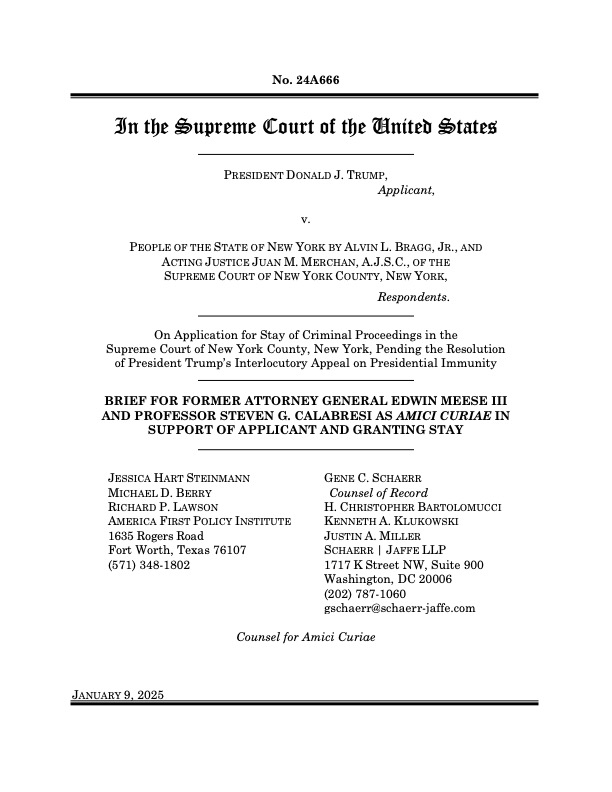Brief and Support of President Trump’s Appeal to the Supreme Court
This continued prosecution of President Trump violates core constitutional principles long recognized by the Department of Justice’s Office of Legal Counsel (OLC), which issues opinions on behalf of the Attorney General that are the formal legal position of the Federal Government and binding on the Executive Branch. OLC has issued three opinions—in 1972, 2000, and 2024—on prosecuting a sitting President of the United States. And, under OLC’s consistent view, given President Trump’s imminent return to the White House, presidential immunity requires that the prosecution brought against him in New York County by District Attorney Alvin Bragg be dismissed and the jury verdict vacated. President Trump’s request for a stay is therefore well-grounded.
OLC holds that the Constitution forbids a sitting President being indicted or prosecuted, granting him unique immunity. This presidential immunity arises from the separation of powers at the federal level, and exists at the state level because of federalism and comity rooted in the Supremacy Clause. It extends to all stages of criminal proceedings, including sentencing and appeals. Criminal prosecutions are of a different species from civil litigation because of the greater burden they impose. Although a particular prosecution might not burden a President to an unconstitutional extent, the lack of certainty ex ante on that score necessitates a categorical rule against indictment and prosecution. The scope and gravity of a President’s duties are such that the practical demands of the presidency are allconsuming, whether as Commander in Chief or Chief Executive. And the risk that the stigma attending criminal proceedings would impair the President’s performance both at home and abroad is intolerable under the Constitution. Given that, it is unsurprising that OLC recently concluded that the Constitution does not even permit a prosecution to be held in abeyance during a President’s term in office. Presidential immunity extends to the outer perimeter of his responsibilities, so a categorical rule best captures the core of immunity that its holder need not answer to a court.
